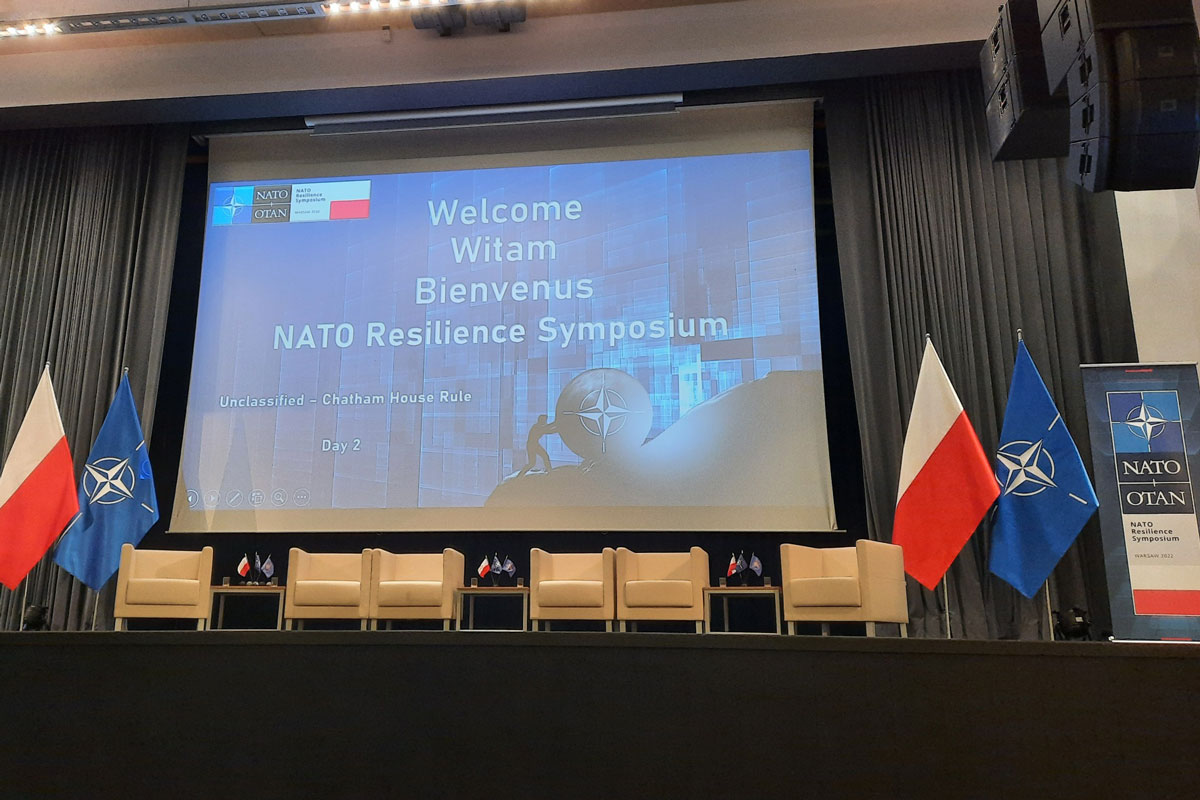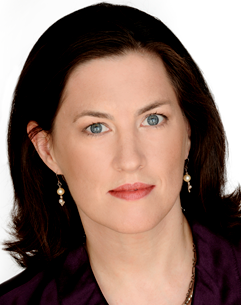Beth Chalecki, Ph.D., Engages Global Community on Climate Resilience
- published: 2022/11/02
- contact: Courtni Kopietz - College of Arts and Sciences

Heat waves don't stop at borders; neither do microbes and viruses, floods and droughts. Beth Chalecki, Ph.D., Associate Professor of Political Science and Director of the Sustainability minor at UNO, says the world needs a new theory of international relations that deals with ecological stability.
“Preserving the ecosystem has got to be the primary value of nations around the world,” Chalecki says, “then you can build economic, political, cultural, scientific and technological systems on top of that. But if you ruin the environment, nothing else above it is stable or productive.”
 Chalecki has expertise in the intersection of climate change, national security and international relations, and her work in this arena resulted in the award of two prestigious fellowships, as well as connections to a branch of NATO called the Supreme Allied Command Transformation (ACT). Her relationship to the NATO ACT branch started back in 2017 when she was invited to give a talk for a strategic foresight assessment on climate change and security. Fast forward to the spring of 2022 when the same NATO ACT contact reached out again, just as she was about to start her Canadian Fulbright Fellowship.
Chalecki has expertise in the intersection of climate change, national security and international relations, and her work in this arena resulted in the award of two prestigious fellowships, as well as connections to a branch of NATO called the Supreme Allied Command Transformation (ACT). Her relationship to the NATO ACT branch started back in 2017 when she was invited to give a talk for a strategic foresight assessment on climate change and security. Fast forward to the spring of 2022 when the same NATO ACT contact reached out again, just as she was about to start her Canadian Fulbright Fellowship.
“He said, ‘we are having a symposium in Poland in the beginning of May, and we need somebody to talk about climate. Would you like to do it?’ So, I got to Canada, say hello to everybody, turned around, and flew to Poland for the resilience symposium in Warsaw. It was very interesting to listen to what everybody thought about resilience.”
This resilience symposium, exclusive to only NATO members, opened up new conversations and future opportunities essentially all addressing: how can NATO remain resilient (or become more resilient) in the face of all these different threats? Chalecki chaired and presented on a panel to discuss international relations and climate resilience, while other panelists weighed in on climate resilience from the operational planning side.
The panel generated a lot of interest, and as soon as Chalecki returned from Poland, another invite arrived — this time for a summer symposium in Geneva, Switzerland. Called Partnerships 360, this symposium included NATO partners and participants from non-member states like New Zealand, South Korea, and Ukraine. Conversations took place against the backdrop of the war in Ukraine, and discussions focused on how international partnerships — even with non-NATO members — can be leveraged for the benefit of all parties in the face of changing threats.
“NATO is starting to take climate security more seriously as a strategic backdrop for their future planning,” Chalecki says. “We're going to start to realistically assess how changing climate is going to affect what NATO needs to do, the security situations it has to address, and how its member states and partners will contribute.”
And now, in November 2022 in Berlin, Germany, another piece of the larger puzzle will be discussed: strategic foresight. It’s an opportunity for blue sky thinking and looking over the horizon five, 10, 50 years into the future. Chalecki will be leading a climate panel, which she recommended take place before all other agenda items, because ultimately, it influences all other aspects.
“Climate is going to be the backdrop for everything else people want to know about military operations, refugees, public health concerns, and food and water security,” Chalecki says. “If you want to know about relations, energy, trade and everything that goes into security, it's going to have to start with the backdrop of a changed climate, a globally warmed world.”
Decarbonization of the global energy supply
One of the major approaches to addressing the acceleration of climate change is pursuing decarbonization, both through technologies that remove carbon dioxide from the atmosphere and a transition to energy sources — like solar, wind, or hydro — that produce less carbon emissions.
Chalecki says the decarbonization of the global energy supply is going to cause strategic shifts between countries. Countries that export large amounts of fossil fuels and petroleum, like Saudi Arabia, Nigeria, and Russia, for example, are used to holding a particular position in the international trade community because of their exports. If no one is buying the product, this decreases their political and economic power, which can cause political unrest in the countries themselves. It's a complicated situation, with no easy answers.
“As we move away from fossil fuels, the countries that don't adapt or can't adapt, are going to find themselves further and further behind — and the rest of the world, what is their responsibility to those nations? This is going to cause unrest in the international arena from a security point of view, from a political point of view, and from an economic point of view,” Chalecki says.
An October 2022 report from UN Intergovernmental Panel on Climate Change highlights that current climate commitments are not enough to limit global temperature rise to 1.5 degrees Celsius by the end of the century, a goal set to help the world avoid the worst impacts of climate change. Still, there are reasons for hope as countries work to strengthen commitments.
NATO also announced this year that Canada will host a new Climate Change and Security Centre of Excellence, a move that demonstrates a commitment to understanding the strategic ramifications of a changing climate.
“It's really inspiring to see; we have planetary-level problems, but we also have people that are working to solve planetary-level problems,” Chalecki says. “And that is something that I'm glad to be part of.”